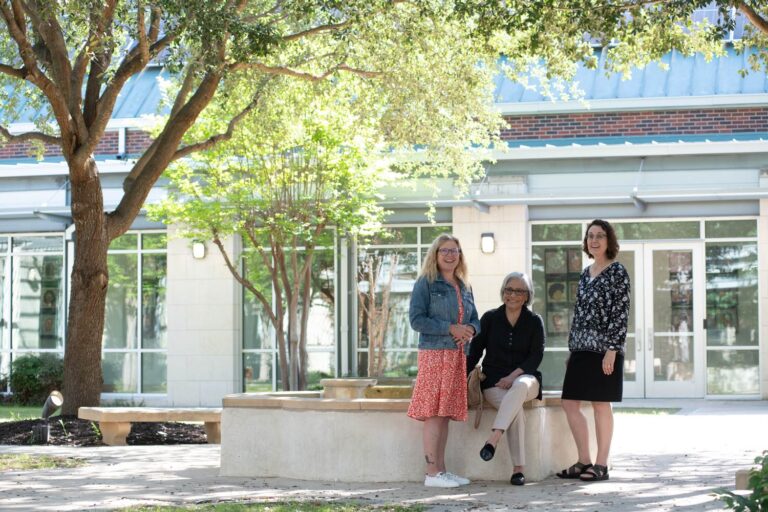Pope Francis has spoken at various times about the Corona pandemic asking Catholics and all people to respond to the crisis as one family. If we do, he says, we will work on eliminating the inequities and injustices that undermine the health of the entire globe. His fear is that we may “be struck by an even worse virus, that of selfish indifference. A virus spread by the thought that life is better if it is better for me, and that everything will be fine if it is fine for me.”
How do we truly think of ourselves as one human family? The first reading and the gospel today speak about how mercy and forgiveness operate in our lives, in the community of humans, and in our relationship with God. Pope Francis declared a jubilee year of mercy a few years ago to focus on how indifference prevents us from being that one human family.
Can mercy help us overcome selfish indifference? The first reading from the book of Sirach deals with relationships, the heart of what makes us human. The difference between a life of anxiety, depression and violence versus a happy peace-filled meaningful journey through life is what is discussed. Jesus always talked about his relationship with the Father and invited us into that relationship. That relationship is the key to fulfillment in life.
This section of Matthew today is called the Sermon on the Church. Matthew wants to teach his community how they should relate to Christ and each other. Sirach is similar to what Jesus says in the gospel today about mercy: how can you expect mercy from God if you do not know how to show mercy to others? For the writer of Sirach as well as for Jesus our mercy must always be seen in the light of God’s mercy. God is merciful no matter what. That mercy lasts for our lifetime. That mercy is also overwhelming. It is the mercy that forgives a lot, 70 times 7 times. 7 is a perfect number in Jewish thought so multiplying it is limitless. Therefore, mercy and forgiveness must be offered always, and without even waiting for the other to ask.
The parable Jesus shares tells us that to practice mercy requires transformation. To understand the power of the parable try to make yourself a listener in front of Jesus and enter into the moment. The listeners to the parable were in for a whiplash experience with this story. Mercy was supposed to change the other and yet it did not.
Jews listening to this would have deduced that the story was about Gentiles, not them. Remember Jews were taught the Gentiles were not good people. The king and the servants were Gentiles. What was forgiven? A huge impossible amount: 10,000 talents or 60 million days wages or more than 230,000 years of work! This of course was a deliberate exaggeration to make a point. 10,000 was the highest figure in arithmetic for the people of Jesus’ time. A Jew would never have been trusted to manage that large an account. So, the listeners would have seen the first servant as a member of the rich class, who were rich at the expense of the poor. As the pope said, “Life is better if it is better for me.” The thinking of the time was there was only so much to go around and if you had more then I had to have less. One of the issues in the racial reckoning we are going through in this country today is that historically every time the black community was beginning to get ahead economically something happened to take that away. The Tulsa race massacre of 1921 is one of many examples.
Those listening to Jesus’ parable would have eagerly waited to hear about the punishment for the king’s servant, this terrible Gentile. The listener places his or herself in a position of superiority early in story. Also, the punishment of selling the wife and children into slavery was forbidden in Jewish law, so the listener is now feeling even more superior criticizing the Gentiles. When the king unexpectedly forgives, the superiority of the listener is taken away. There is unbelief that such generous mercy could have happened. This would have created a dilemma for the listener, namely how to think about non-punishment and mercy.
The second scene in the parable is a huge contrast. There is little debt, but the forgiven servant, now in a position of power shows only ruthlessness and violence. Both are servants. However, he seizes the other by the throat and threatens him. There is not a king/servant relationship as in the first scene, so there is rough equivalence between the two, like many of our own relationships. Now the listener to the parable is judging Gentiles as being unforgiving and identifies with the second servant. The king and the listeners are in same camp: the servant must be punished and it seems as if it will be forever, think hell. Punishment is now as exaggerated as the original debt. Do you feel how the listener is being tossed around back and forth?
Jesus’ story would have shocked the listeners, which was true for many of his parables. This story moved them to understand the unexpected and astonishing possibilities of living in the reign of God. The big shock would have been in the king taking back the mercy. If this can happen, then who is safe? However, the listeners are complicit in this as they demanded punishment. So now, the listener is in the uncomfortable position of being unmerciful, which meant that the listener is also at risk of not being forgiven. No one is innocent, because the fellow servants and listeners demanded vengeance, no better than the one they reported. They all failed to show mercy.
The parable is a warning that forgiveness can be forfeited. The evil of the final punishment makes the listener and fellow servants complicit, not for intentional evil, but for systemic evil. The complaint about systemic racism is that it is so much part of the system at all levels that none of us feel we intend it or are responsible for it. In one way that is what keeps it going.
Matthew knows his Christian community is not perfect. They had their prejudices and at times also ruthlessness and arrogance. Matthew wants a community of care, tolerance, and kindheartedness. We are all in need of mercy, and thus must carry Christ’s unconditional love and forgiveness to all. 7 times 70 means always and forever. In the gospel the Jewish listener had to admit he is not morally superior to others. We need to admit the same. We all are sinners in need of God’s mercy. Matthew’s question, which he wants us to always ask ourselves as we read his gospel, then arises: Where do I go from here? What do I do about this?
God’s mercy is infinite. If we trust in God’s grace then our mercy can also be infinite. The first surprise in the story was the king’s forgiveness. His mercy was overwhelming.
It is clear from the readings that we are not just called to forgive when convenient or to our advantage to forgive, or when we need something from the other. We are called to an extraordinary mercy, a forgiveness of the heart. It is the heart that changes us and others. That is the transformation.
This virus has exposed so many things that are not right with our community and with the world. What I think the pope is asking is will we hear a call to reconciliation in this difficult time, to show mercy from the heart. This does not mean we condone bad actions, nor does it mean we forget. It does mean we are committed to see all as sisters and brothers, children of the same Father who created all in God’s image.
Many of us can remember Pope John Paul II went to see his would-be assassin and forgave him. It is not for us to judge, that is God’s job. The readings today focus clearly on God’s mercy. Now to do it ourselves.
 Fr. David Garcia is a retired priest from the Archdiocese of San Antonio, Texas, where he served for 44 years. During that time, Fr. Garcia was instrumental in the effort to have the Old Spanish Missions recognized as a UNESCO World Heritage Site and also oversaw the multimillion-dollar restoration of San Fernando Cathedral. Fr. David served as pastor for several parishes in San Antonio, including the historic Mission Concepción. He also served as Senior Advisor for Clergy Outreach at Catholic Relief Services, the official international humanitarian and relief agency of the US Conference of Catholic Bishops.
Fr. David Garcia is a retired priest from the Archdiocese of San Antonio, Texas, where he served for 44 years. During that time, Fr. Garcia was instrumental in the effort to have the Old Spanish Missions recognized as a UNESCO World Heritage Site and also oversaw the multimillion-dollar restoration of San Fernando Cathedral. Fr. David served as pastor for several parishes in San Antonio, including the historic Mission Concepción. He also served as Senior Advisor for Clergy Outreach at Catholic Relief Services, the official international humanitarian and relief agency of the US Conference of Catholic Bishops.



